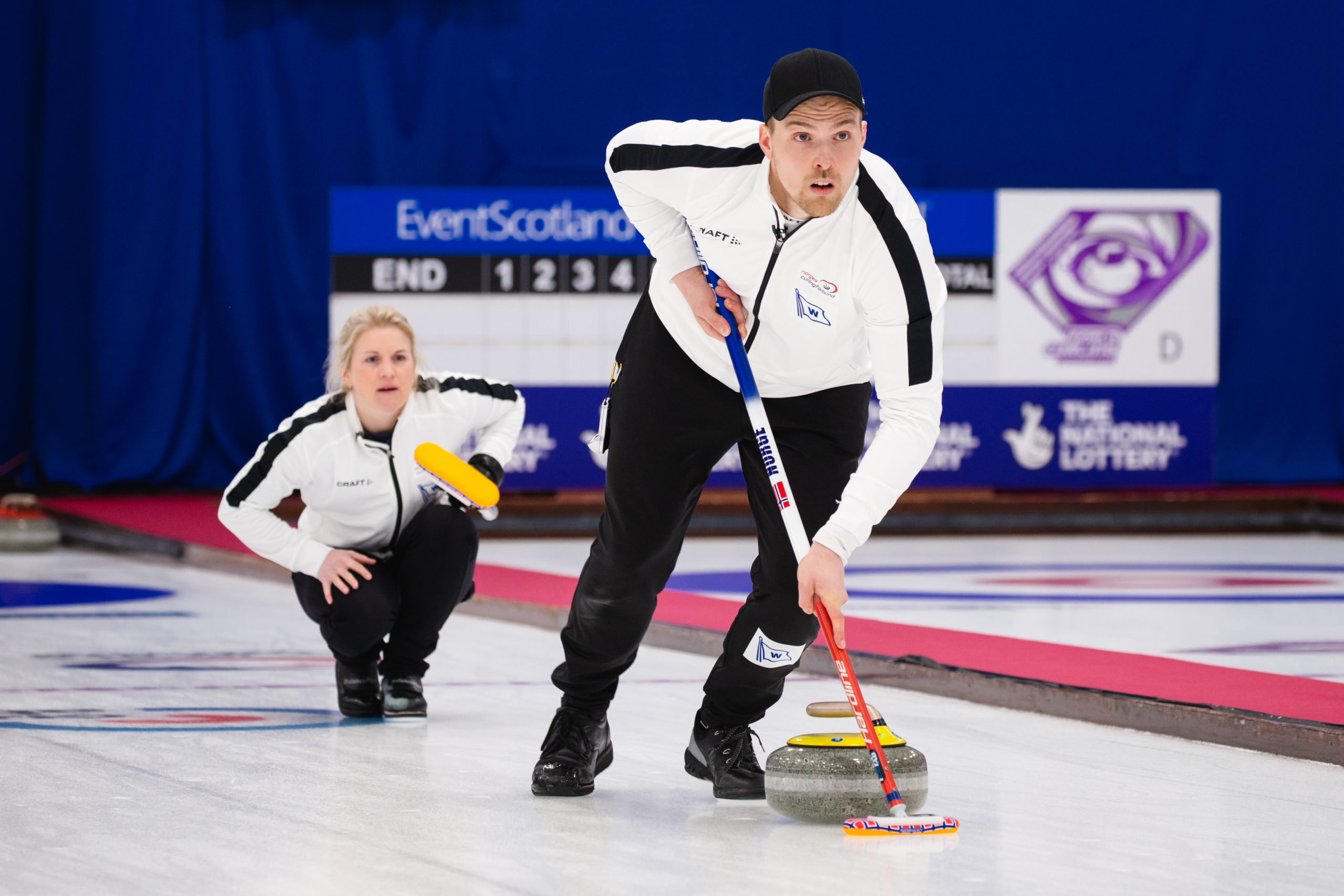On Sunday, the Beijing Winter Olympic Village welcomed the first batch of athletes and officials, marking the Beijing Winter Olympics entering its final 11-day sprint.
Olympic Village staff and volunteers told the Global Times that delegation members from more than 20 countries have moved to the Olympic Village to prepare for the arrival of all the next athletes.
Although Beijing has detected dozens of positive cases among Olympic-related personnel who have arrived in China, athletes, the International Olympic Committee (IOC) and the international community continue to rely on Beijing’s epidemic prevention system for the Winter Olympics.
– Inline Ads Articles Ads –
None of the positive cases were found among the athletes or delegation officials, the Organizing Committee said.
Pre-opening of the Olympic Village
On Sunday, three Olympic villages in Beijing, Yanqing district and neighboring Zhangjiakou in northern China’s Hebei province welcomed the first wave of “village residents” of more than 20 delegates, including those from China, the United States, the UK and the team. from Australia.
Within the first hour, seven members of the Australian delegation and eight members of the British delegation managed to register in Zhangjiakou village, China Central Television (CCTV) reported on Sunday. Another 36 are expected to register in Zhangjiakou village on Sunday, according to CCTV.
Qu Songming, director of the Beijing Village Plaza Area, told the Global Times on Sunday that some athletes had settled in the Beijing Winter Olympic Village on Sunday.
Qu said that several athletes from Poland and the Czech Republic had visited the square area, where athletes can shop and other recreational activities, and expressed their satisfaction.
As of Sunday afternoon, no athletes had visited the competition venue, Qu said.
A volunteer surnamed Xiao told the Global Times on Sunday that several athletes from the US, UK, Australia and other countries had registered at Zhangjiakou Village, with volunteers living a kilometer away.
Several members of the mainland Chinese delegation have also entered the winter Olympic village.
According to the Organizing Committee, from Sunday to Wednesday is the pre-opening phase of the Olympic villages, where the main residents are advanced personnel providing logistics and services.
Once settled, these staff will hold a registration meeting with the Village Operations team to confirm the athlete delegation eligibility, delegate entry numbers, access rights, and to prepare the athletes for entry, athletes and other delegate members in the three competition zones.
This procedure is designed to reduce the formalities and procedures for athletes from different countries to move to the Olympic Village, allowing them to move directly to the Olympic Village and prepare for competitions after the Village’s official opening on 27 January.

Confidence in closed circuit
Epidemic prevention and control will be the top priority of Winter Olympic Village management and services, Shen Qianfan, director of the Beijing Winter Olympic Village operations team, told media.
“After the village opening on Sunday, our team staff will maintain health surveillance and self-protection, and dynamically adjust the epidemic prevention system in key areas such as athletes’ apartments and comprehensive clinics to minimize the risk of infection. 19,” said Shen.
As of midnight Saturday, a total of 39 positive test results had been found in 2,586 Olympic-related people arriving at the Beijing Capital International Airport since Beijing officially started using the closed-circuit system on January 4. Competition Committee.
Another 33 positive results were found among a total of 336,246 closed-circuit tests over the same period.
None of the positive cases were found among the athletes or delegation officials. The organizing committee underlined in its announcement that the Olympic closed circuit is completely isolated from the general public.
Although Beijing has recently experienced several minor outbreaks in the capital, with 43 cases of internal transmission recorded in the last week, the Organizing Committee and the IOC remain confident in the epidemic prevention procedures for the Beijing Winter Olympics.
According to the Xinhua News Agency, the preparations for the Olympics have been basically established, and epidemic prevention and control measures have been tested through several experimental events, which have proven to be able to effectively reduce the epidemic risk.
IOC President Thomas Bach said last week that under great pressure from the changing pandemic situation, the Beijing Winter Olympics Organizing Committee had taken decisive and effective action.
The closed circuit management is safe and smooth, and the service and guarantee are attentive and considerate, which is highly recognized by the international community, he said.
“We are confident that the Olympics will proceed safely and smoothly as planned, and we will take the lead in implementing epidemic prevention measures and guiding and urging all parties coming to China to strictly adhere to anti-epidemic provisions,” Bach said.
The closed-loop management system, a core part of epidemic prevention management for the Beijing Winter Olympics, has also been well received by the participating athletes.
“I think it’s good to have stricter anti-epidemic policies for the Winter Olympics. The whole world is in special circumstances right now and we have to accept it,” Swiss snowboarder Jan Scherrer told Chinese media. “Now I’m really looking forward to the Winter Olympics.”
“Once we arrived at the Winter Olympics in Beijing, I thought it was the safest place,” said Anna Gasser, Austrian Olympic gold medalist in snowboarding, in an interview with Chinese media.
According to the IOC, the vaccination rate of participating staff at the Beijing Winter Olympic Village is close to 100%.
The Global Times is also aware that all of China’s Olympic support staff have been fully vaccinated and strengthened.
Michael Ryan, head of the World Health Organization’s health emergencies program, also said he was confident in the measures being put in place by the organizers of the Beijing Winter Olympics, and that the Games were not expected to increase the risk of contagion.
Final preparations in progress
Starting Monday, 12 competition venues, 28 non-competition venues, and three practice venues will enter the competition phase.
Countries have essentially determined the size and membership of their participating delegates. Among them, the United States Winter Olympics delegation included 222 athletes, ranging in age from 16 to 40.
Russia will send 217 athletes to participate in all competition events, and the entire Winter Olympics delegation will number 509 people.
Japan is expected to send at least 122 athletes to the Beijing Winter Olympics.
The Chinese delegation to the Winter Olympics is expected to be officially announced next week, and will almost certainly be China’s largest Winter Olympics delegation.
The rehearsal for the opening ceremony of the 2022 Beijing Winter Olympics was held at the Beijing National Stadium on Saturday evening.
Unlike the 2008 Beijing Olympics opening ceremony, which lasted four hours and featured 15,000 artists, the 2022 Olympics opening ceremony will be based on high technology rather than using the previous strategy of “high turnout” and will last less than 100 minutes and feature about 3,000 players, according to director Zhang Yimou.
The opening ceremony of the Beijing Winter Olympics will be held on February 4.
With information from Global Time

“Problem solver. Proud twitter specialist. Travel aficionado. Introvert. Coffee trailblazer. Professional zombie ninja. Extreme gamer.”




:quality(85)//cloudfront-us-east-1.images.arcpublishing.com/infobae/JJWZJ63XRVEJTOW3CYU6J4PSC4.jpg)


